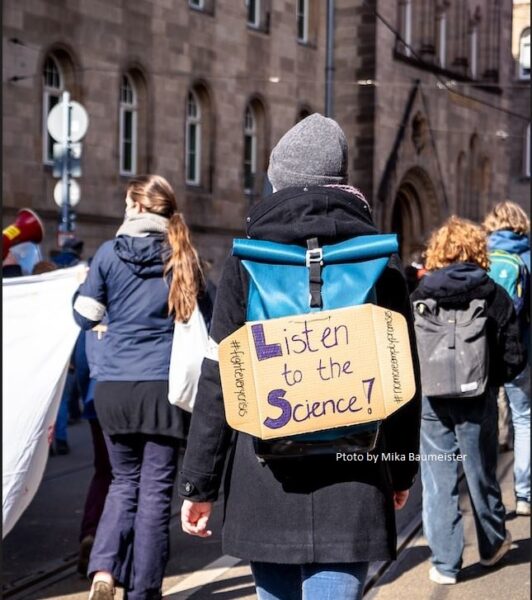Welcome to the Walker Update, bringing you up to speed with the latest developments from the Walker Institute and the wider climate science field.

On 2nd February, 2023, Dr Cathie Wells shared her PhD project findings with the Oxford Computational and Applied Mathematics Group. This 45-minute seminar was the first in-person presentation the group had hosted since the COVID pandemic and was well attended both on-line and on-site. The talk was enthusiastically received and followed by an interesting discussion into possible future directions for the work. A highlight of Cathie’s trip to visit the Rutherford Appleton Laboratory was a guided tour of some of the incredible experiments that take place there, such as those involving high power lasers that can recreate the conditions inside stars and the UK national synchrotron radiation facility, which generates beams of light from infrared radiation to X-rays to allow research into all types of structural matter.

Dr Elena Saggioro gave an invited talk on her PhD work on causal network for the study of climate variability at the weekly Geophysical and Environmental Processes seminar series at the Department of Applied Mathematics and Theoretical Physics (DAMTP) of the University of Cambridge. After a brief introduction to the theory and use of causal network in climate science, Elena presented some results from the application of probabilistic causal networks to study long-range predictability of the Southern Hemisphere jet variability. The talk was followed by a lively Q&A session and dedicated discussions with DAMTP PhD students also interested in applying novel statistical and Machine Learning methods to advance climate studies.
Link to event web-page
 Following on from the talk given about the Walker Institute and Climate Change at Henley College in October, Dr Cathie Wells presented a 45-minute seminar about flight path re-routing to reduce carbon dioxide emissions at the February meeting of the Café Scientifique in Henley. After an exploration of four different methods to solve the inherent optimal control problems posed by searching for time minimal and fuel minimal routes, there was a lively question and answer session. A refreshment break followed, with the evening being rounded off by a quick discussion on the work of the Walker Institute, introducing the audience to some of our recent projects via our new website.
Following on from the talk given about the Walker Institute and Climate Change at Henley College in October, Dr Cathie Wells presented a 45-minute seminar about flight path re-routing to reduce carbon dioxide emissions at the February meeting of the Café Scientifique in Henley. After an exploration of four different methods to solve the inherent optimal control problems posed by searching for time minimal and fuel minimal routes, there was a lively question and answer session. A refreshment break followed, with the evening being rounded off by a quick discussion on the work of the Walker Institute, introducing the audience to some of our recent projects via our new website.
What happened across the world this week?
Prof Virginia Murray and her team at Public Health England have produced the weekly Global Hazards Weekly Bulletin, archived by Prof Richard Allan.
All the best!
The Walker Institute Team

